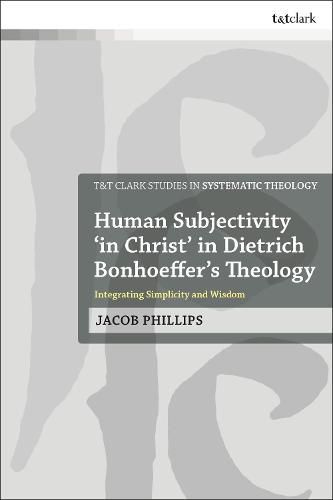Readings Newsletter
Become a Readings Member to make your shopping experience even easier.
Sign in or sign up for free!
You’re not far away from qualifying for FREE standard shipping within Australia
You’ve qualified for FREE standard shipping within Australia
The cart is loading…






Jacob Phillips presents a critical study of a neglected aspect of Dietrich Bonhoeffer’s theology: his writing on human subjectivity, self-reflection, and individual identity ‘in Christ’. In response to the rise of chronic self-representation through digital technology, Phillips argues that Bonhoeffer presents a radical challenge, maintaining that - from the perspective of Christian theology - there is something deeply negative about beholding representations of oneself. Bonhoeffer instead holds that discipleship means adopting a posture of radical agnosticism toward one’s own identity.
Phillips focuses on the interrelation of ‘simplicity’ and ‘reflection’ in theological cognition and ethical deliberation, showing a wider significance in contemporary theological anthropology, soteriology and ethics. By following the tradition of reading Bonhoeffer in relation to the philosophical sources, such as Wustenberg , Janz, Whitson-Floyd, Marsh, Zimmermann, Gregor, Phillips highlights the ways in which Bonhoeffer’s work relates to modern debates in epistemology and ethics generally, and that of Wilhelm Dilthey and hermeneutical phenomenology in particular. This volume offers a detailed theological analysis of the themes of self-identity, human subjectivity, and self-understanding, which are highly pertinent for contemporary society.
$9.00 standard shipping within Australia
FREE standard shipping within Australia for orders over $100.00
Express & International shipping calculated at checkout
Jacob Phillips presents a critical study of a neglected aspect of Dietrich Bonhoeffer’s theology: his writing on human subjectivity, self-reflection, and individual identity ‘in Christ’. In response to the rise of chronic self-representation through digital technology, Phillips argues that Bonhoeffer presents a radical challenge, maintaining that - from the perspective of Christian theology - there is something deeply negative about beholding representations of oneself. Bonhoeffer instead holds that discipleship means adopting a posture of radical agnosticism toward one’s own identity.
Phillips focuses on the interrelation of ‘simplicity’ and ‘reflection’ in theological cognition and ethical deliberation, showing a wider significance in contemporary theological anthropology, soteriology and ethics. By following the tradition of reading Bonhoeffer in relation to the philosophical sources, such as Wustenberg , Janz, Whitson-Floyd, Marsh, Zimmermann, Gregor, Phillips highlights the ways in which Bonhoeffer’s work relates to modern debates in epistemology and ethics generally, and that of Wilhelm Dilthey and hermeneutical phenomenology in particular. This volume offers a detailed theological analysis of the themes of self-identity, human subjectivity, and self-understanding, which are highly pertinent for contemporary society.